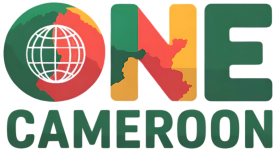Opinion
Like a ship tossed by storms, Cameroon continues to sail toward its horizon, sure of its choices and its ambition. Yet, some perverse minds are busy predicting imminent shipwreck, while other miracle-workers offer a cheap panacea. But the truth is more complex.
Cameroon needs, now more than ever, to stay the course. A course anchored in political stability, strengthened by the achievements of the past 40 years, and oriented toward pragmatic reforms. Against these life-saving elixirs, here is why and how we must preach stability.
Political Stability: A Treasure to Be Preserved
We are constantly told that Cameroon is “regressing,” that it is “on the brink of chaos,” and what else!!! Yet, since 1982, the country has avoided many political pitfalls and braved the many economic slumps that have marked its path. The peaceful transition of power that occurred in 1982 remains a model of democratic maturity and institutional stability. This stability has helped improve economic growth, strengthen national unity, preserve social peace, improve governance, and ensure greater international attractiveness.
Of course, numerous crises continue to hamper society (the threat of terrorism, separatist tendencies, the proliferation of hate speech, the adverse effects of climate change, the manipulation of public opinion, violations of freedom of expression, the weakening of the justice system, corruption and cronyism, etc.).
But this panorama, while certainly worrying, does not describe the reality of Cameroon today. This country, like most nations of comparable stature and context, faces a number of challenges that sometimes hamper its social vision. These include security crises, an incomplete democratic transition, corruption and poor governance, poor respect for human rights, a poorly diversified economy, youth unemployment, an embryonic infrastructure, and varying levels of debt.
Development underway
All things considered, Cameroon has made considerable progress over the past 40 years. The country has established the essential elements upon which sustainable, equitable, and beneficial growth for the entire population is based. It boasts considerable human capital, a skilled workforce, and equal opportunity is practiced, with the broad inclusion of youth and women, and the rights of minorities are taken into account.
In terms of good governance, institutions are solid and functional, the fight against corruption is intense, and political stability is assured. Economically, the authorities are making a point of diversifying the economy and partnerships, promoting entrepreneurship, and regional integration as a major economic policy option. Basic infrastructure is being built across all ten regions of the country in terms of roads, highways, ports, airports, and railways. Access to water and electricity is a major lever on which Cameroon bases its economic model to improve health, education, economic productivity, and the fight against poverty. Finally, in terms of social cohesion, the government promotes social justice, a culture of peace and dialogue, and citizen participation in public affairs. Environmental management is not left out. Cameroon’s environmental policy is part of a sustainable development dynamic, integrating social, economic, and ecological dimensions. As a country with richly varied biodiversity, the government ensures its protection through sustainable forest management, adaptation to climate change, water management and sanitation, and pollution control. Cameroon is a primarily agricultural country. While the majority of the working population makes a living from agriculture, it is relatively unmechanized and largely traditional. It depends largely on the vulnerability of the seasons and the vagaries of the climate; agricultural products are exported without processing, due to an obsolete or embryonic industrial base. This explains why, for several decades, the government has been committed to agricultural modernization through training, mechanization, and the introduction of inputs that promote greater profitability, the development of rural infrastructure, economic diversification, protection against climatic hazards, improving the living conditions of rural populations, increasing the youthfulness of the rural workforce, and combating rural exodus.
Staying the Course, Arming Us for the Future
Remaining stable does not mean standing still. It means that Cameroon has political institutions that function normally and without interruption; that political power is exercised regularly, with clear, peaceful, and respected transitions; that there are no major conflicts or political violence that threaten social peace; that laws and regulations are applied consistently and predictably; and that citizens have a sense of political security, with confidence in leaders and institutions.
Economically, stability means maintaining a positive and stable GDP growth rate over several years, controlling inflation, streamlining public spending, responsible management of public debt, maintaining a credible monetary policy implemented by the central bank, ensuring prudent management of reserves and foreign exchange and controlling financial flows, and combating unemployment, especially among young people.
Cameroon is clearly on the right track. We will then need to accelerate decentralization further, invest more in social services, train young people in emerging professions with high economic potential, and relentlessly combat corruption.
A relentless fight…
Cameroon is a country under construction, with its strengths and weaknesses. To those who want to destroy everything, let us remind ourselves of the obvious: radical revolutions have often given birth to monsters (Syria, Libya). To those who doubt, let us say this: look at the Southwest and Northwest regions, which are bravely recovering; listen to the farmers in the regions that now sell their crops on new road infrastructure; consider the technical capabilities of these modern regional hospitals, these state universities, numerous (eleven in total) compared to only one university a few years ago… The direction is clear: stability, reforms, inclusion.
Let us not allow the extremists—whether ethnic, populist, or anarchist—to hijack the ship. Cameroon deserves better than political heckling and shenanigans. He deserves our lucidity and our courage, our resilience.









